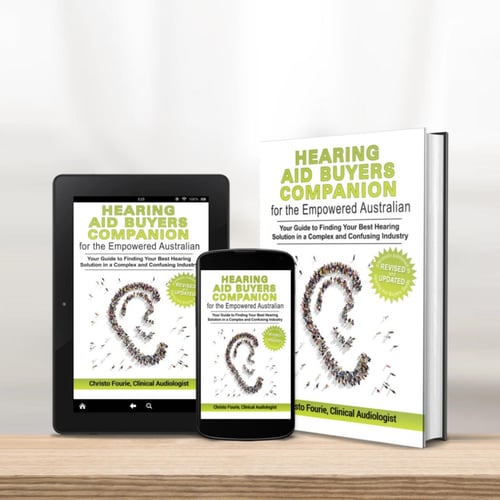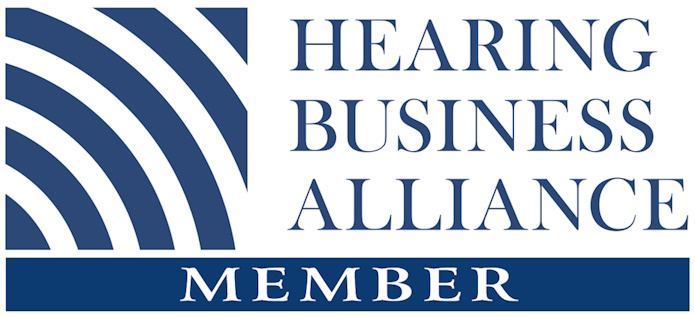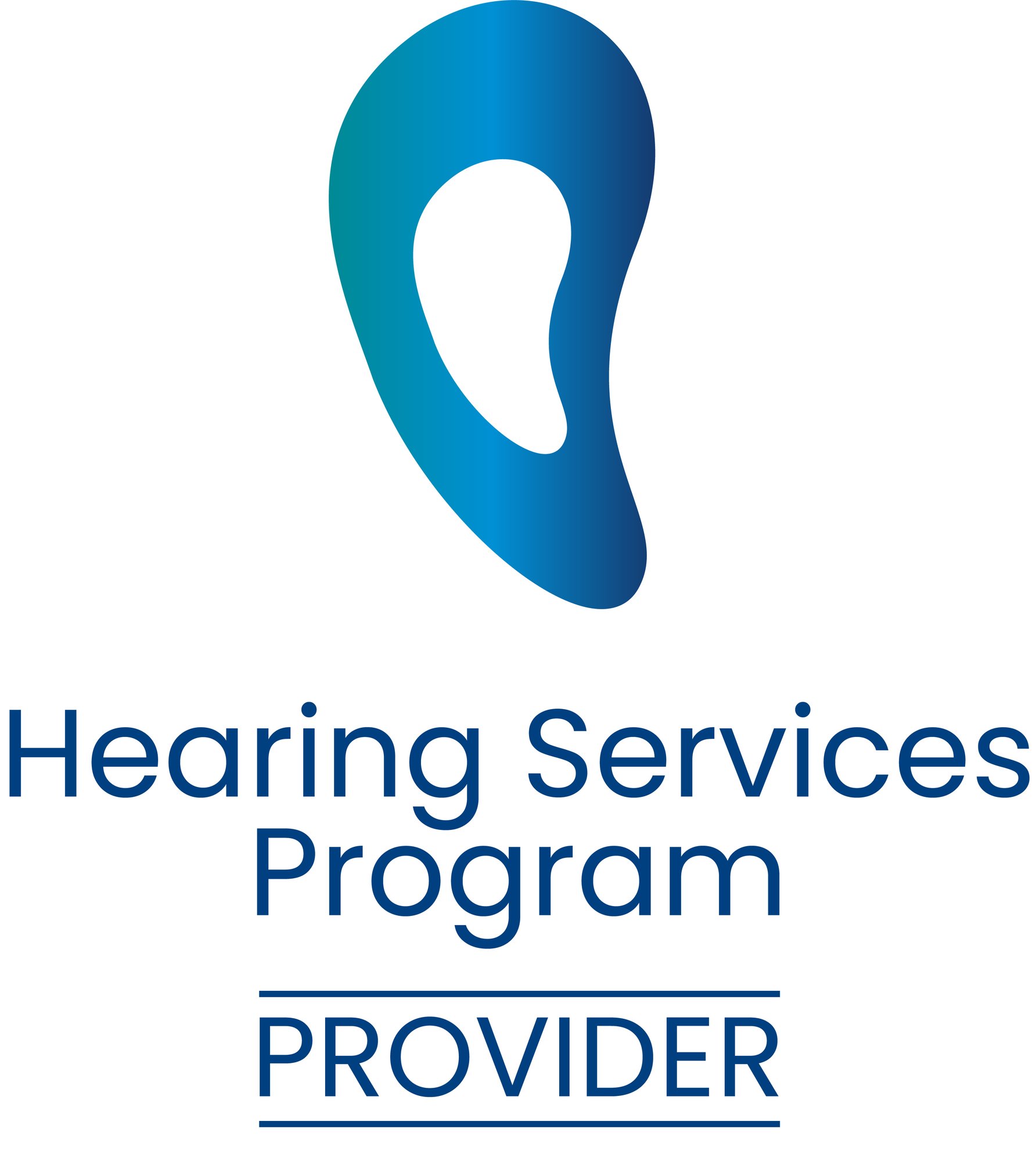Whether a loved one or a professional says: "you need hearing aids", it can come as quite a shock and frankly be a bit upsetting. You may experience several questions racing through your mind, mixed with a bunch of emotions.
Take a moment to catch your breath, center yourself, and look at the issue logically.
The following steps are there to guide you in your decision-making process. In the end, though, only YOU that can make the final decision on whether or not to address your hearing problems.
This is a rather long article and these points and more are downloadable in the form of the Hearing Aid Buyers Companion for free below. Click here to go straight to the Companion download.
Why do I need a hearing aid?
Whether you really need hearing aids is likely one of the first questions that need to be addressed.
Unlike the loss of sight, which affects the visually impaired person and probably no one else, hearing loss tends to affect those around us first. Hearing loss directly affects our ability to communicate and communication is a two-way street. When you cannot hear someone speaking, they often have to repeat themselves or may even wonder about your response, which may have no relation to what they initially said. It is this breakdown of communication that often causes feelings of frustration, embarrassment, anxiety, depression, and isolation, which are highly correlated with untreated hearing loss. This is also one of the reasons that it is often other people telling you that you need your hearing checked, rather than something you noticed yourself that notices your hearing problems.
Hearing loss is most frequently very gradual, so you tend to have lots of time from onset until it becomes a major hindrance, to find workarounds. Hearing loss often only affects part of your hearing. So you may only miss out on the higher tones, which would make people sound like they mumble and also tends to make female or child voices harder to hear. Hearing loss may only affect your hearing of soft or distant sounds, so one tends to blame others for not speaking loudly enough or speaking from another room. These signs can be quite subtle and often one's natural tendency of denial could stretch these issues out for years before one chooses to address them. Early hearing loss may frustrate others more than it does you.
Unfortunately, hearing loss does not only affect the ear. The ear could be viewed as simply being the microphone to the brain. When hearing loss is present, certain sounds do not reach the brain or reach it in a distorted manner. This can cause physical changes to the brain's wiring as your brain tries to overcome the lack of stimulation of the auditory (hearing) centers. Brain scans (fMRI) of people with even mild hearing loss clearly show these changes. These brain changes have also been linked in several recent studies to an increased risk of cognitive decline (dementia) in those with untreated hearing loss. Fortunately, the reverse also appears to be true. When you are optimally fitted with hearing aids, sufficiently early, these brain changes appear to be reversible. So investing in hearing aids when indicated is an important step in helping your brain work normally for as long as possible.
Hearing aids are NOT designed for people who are completely deaf, just like spectacles aren't made for people who are blind. They tend to work better with milder hearing loss and people who address their hearing loss early, tend to be more successful with hearing aids.
Common signs that you may need hearing aids:
- You ask people to repeat themselves when they speak while not facing you
- Others complain that you tend to turn the TV or radio up louder
- You seem to hear better when wearing glasses or contact lenses
- You hear better in the mornings or after rest
- You have difficulty following conversations in noisy places such as cafes and restaurants
- You tend to use subtitles on TV where possible
- You often feel that people are mumbling, even though they sound loud enough
- You seem to have more difficulty than before hearing on the phone
- People with accents seem more difficult to hear
- You have difficulty hearing people who speak to you with their heads in a cupboard or who speak to you from a different room
- You hear better when you cup your ears
- Your turn your head to hear someone more clearly
- You can hear, but not understand what someone is saying
- You have trouble locating the direction a sound is coming from
- You have ringing (tinnitus) in one or both ears
If you have answered "yes" to any one of these, you may have a hearing loss.
Not all hearing issues are best addressed with hearing aids
Even though most if not all people with hearing aids have hearing loss, it does not mean that all kinds of hearing loss are best addressed using hearing aids.
One of the key purposes of a comprehensive hearing test is to determine the cause of the hearing loss. By doing this, the hearing care professional can determine what the best next steps for you would be. Please note that I have been told that some hearing clinics may recommend hearing aids after a simple hearing screening (which normally takes no more than 5 minutes for the test). This is far from the gold standard and could lead to serious medical conditions being missed. If you are in doubt, please obtain a second opinion from another clinic.
Causes of hearing loss that may not require hearing aids include:
- Excessive wax buildup
- Ear infections
- Various conditions affect the tiny bones in the middle ear
- Various rare tumors and growths
- Burst eardrums
- Certain disease conditions
- and many more
Many of these can be detected when you undergo a comprehensive hearing assessment. A good audiologist will be well trained to pick up anything out of the ordinary and should refer you for further medical investigation and/or treatment if any of these conditions are identified during your test. Hearing aids are often the last option to be considered.
The takeaway message here is: Get your Hearing thoroughly tested if you think you have any hearing loss
What if I do need hearing aids?
If you have undergone thorough hearing testing with an ethical hearing care professional, they will discuss your need for hearing aids. They should be able to explain their reasoning for their recommendation and be able to point to a specific hearing aid to best address your needs.
The hearing test should ideally include a measurement of your ability to hear sentences in the presence of background party noise. These sentences should be played at levels loud enough to hear without straining due to low volume (if not this might be a tactic used to convince you your hearing is worse than you thought, which is not what these tests were designed for). The clinician should also explain to you in an easy-to-understand manner, why you need a specific hearing aid based on your hearing test results, speech in noise test results, clinical observations, preferences, and hearing needs.
Please be aware that a hearing aid is simply a medical device. The same hearing aid can be considered excellent or horrible. The only difference might be that in the first instance the hearing aid was fitted using Gold Standards by a skilled clinician, whereas in the latter, the hearing aid may have been fitted by someone taking shortcuts or who does not understand the product very well.
Hearing aids need ongoing fine-tuning to keep up with changes in your hearing. Just buying a hearing aid online, with little or no clinical support, does not guarantee success and may, in my expectation be more likely to end up in the drawer. You need to consider that hearing aids are just one little part of the journey.
Some hearing aids are priced simply to sell a lot of hearing aids. Expert clinical fitting, instruction, and support can make out a large portion of the hearing aid price. Without the aftercare support and ongoing active optimisation that hearing aids require, you might be more likely to fail over time. Make sure you compare everything including aftercare and active recalls when comparing hearing aid pricing. Hearing aid prices that appear cheaper may include little of what is really required after the initial sale for you to get the best out of your hearing aids. In my opinion, Clinics promoting cheap prices often make up for what they lose in profit margin with large volumes. I personally don't associate large hearing aid sales volumes with services designed to deliver the best long-term outcomes. Your views may differ.
Which hearing aid is best for me?
This is indeed a great question. You are an individual, with your unique hearing loss, unique brain development, unique lifestyle, unique ear shape, unique needs, unique preferences, and unique expectations. As such a hearing aid should be chosen to match you and no one else. This is one reason why a hearing aid that works well for a friend, may not work as well for you.
All these factors as well as clinical test results should ideally be taken into account when selecting your best hearing aid.
This is a big topic and we have a separate article discussing the best hearing aid for you in so much more detail.
Hearing aids may not actually work for you
Despite much of the marketing messaging out there claiming how well hearing aids work today, you may find that hearing aids may not work well for you. Saying that; modern properly selected, proficiently fitted and clinically supported hearing aids have never enjoyed a higher satisfaction rating from users. It would be wrong of me to not point out the good with the bad, however.
Please visit our free article on why a hearing aid may not work for you, to understand why hearing aids may not work as expected for you.
How to get the best out of your hearing aids
Once you've decided to give hearing aids a go and found your ideal hearing aid with the support of a good clinician, working in a clinic that puts long-term outcomes above the volume of sales, you need to understand how to get the best out of your hearing aids.
You'll find a comprehensive free article on using your hearing aids correctly, here.
Get the book on hearing aids
The sections above have just scratched the surface when it comes to considering and possibly hearing aids. There is so much more to learn in order to fully empower yourself. By empowering yourself with this information, you are better equipped to avoid getting hearing aids that don't work and avoid ending up going to a convenient or cheap clinic, just to later find that you are not happy with the outcome.
The Hearing Aid Buyers Companion, which you can download in full below, covers all of this and so much more. It has been written to give you the skills to navigate the sometimes confusing and sometimes overwhelming world of hearing aids, like an old hand. It retails for up to $40 from some bookstores, but I didn't become an audiologist to sell books. I want you to be empowered and get the best hearing you possibly can, irrespective of where you choose to go. As such I am offering you the complete book as a FREE download here. Simply fill out the form below the image, click Download, and we'll email you the book in PDF format instantly.


